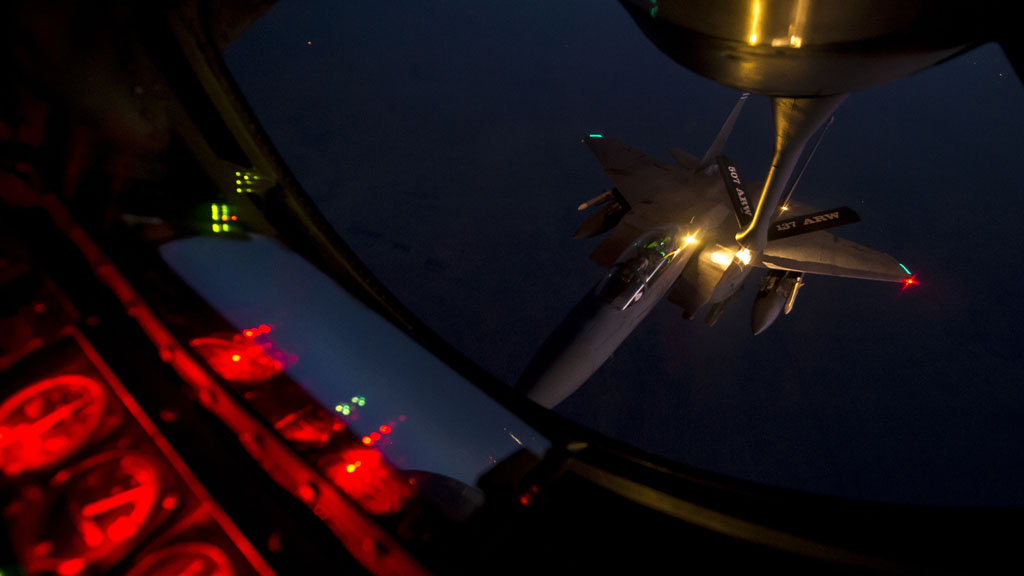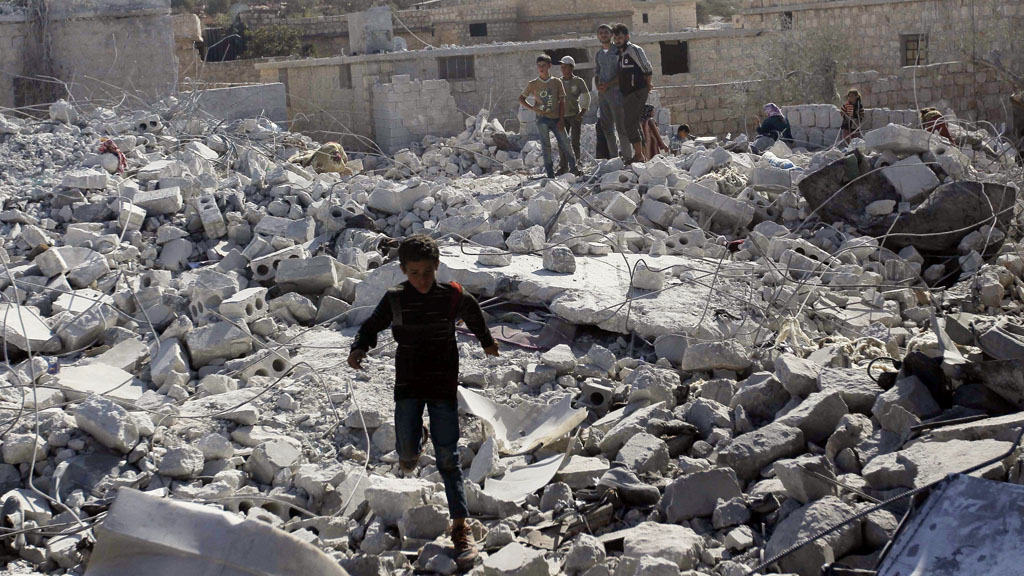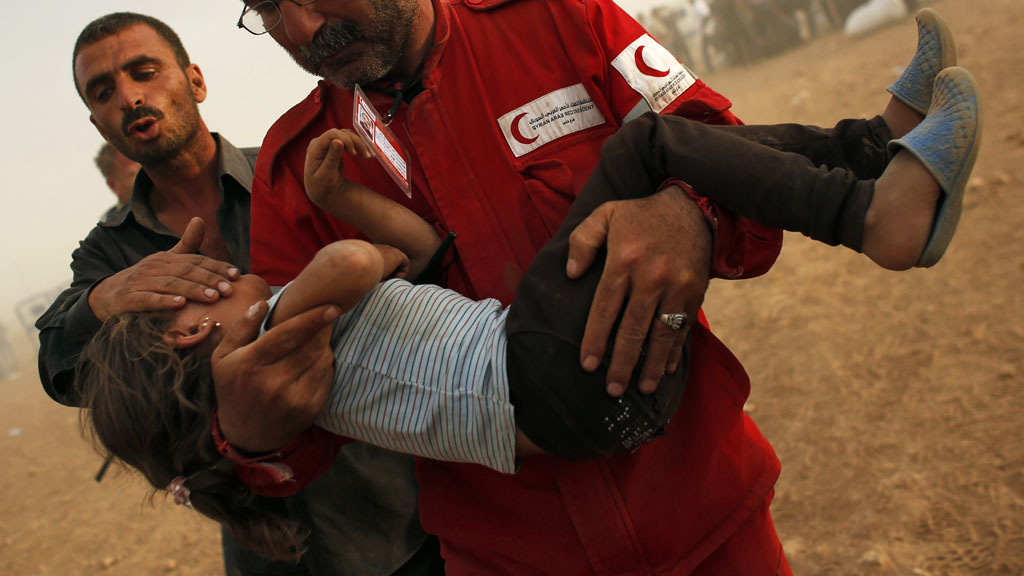Will oil strikes hurt Syrian civilians?
An aid agency warns that the US-led bombing campaign against the Islamic State group could knock out the electricity supply to Syrian hospitals.

A spokesman for the charity Hand in Hand for Syria, which runs its own hospitals and supplies more than 100 medical facilities across the war-ravaged country, said there were concerns that air strikes could worsen an already “horrendous” humanitarian crisis.
The US military launched a wave of air strikes against the Islamist insurgents who have taken over swathes of territory in Syria and neighbouring Iraq on Tuesday. On Friday MPs voted to let British forces take part in the aerial campaign against the group in Iraq.
A number of oil fields and refineries have been hit as the American-led military coalition seeks to target key sources of fuel and funding for the Islamic State (IS) extremists.
IS is believed to control six out of Syria’s 10 oil fields. The group uses mobile refineries to process crude oil and uses black market oil sales to generate more than £1m a day, according to the Pentagon.
Problems for civilians
Hand in Hand for Syria told Channel 4 News that cutting oil production could create problems for civilians.
A spokesman said: “The concern is that many oil refineries are focused in areas that have become a target of airstrikes.
“As most of the infrastructure of the country has been destroyed, many towns and cities, and indeed our hospitals, rely solely on the use of generators.
“These require fuel to power them and fuel prices are rising quickly, we may soon find ourselves running into difficulty powering the generators for our hospitals.”
Strain on resources
She added: “As people flee areas being targeted by coalition airstrikes, many more internally displaced people are moving around in the country and causing a strain on the already-limited resources available in small towns and cities.
“It almost seems like there was no prior planning in this respect.”
Unlike many aid agencies, Hand in Hand for Syria says it is able to operate across most of the country, using local staff rather than foreign workers or volunteers.
The worsening security situation over the last two years, with the rise of Islamic State and a spate of kidappings of foreign journalists and aid workers, means few of the charity’s non-Arabic staff are able to enter the country.

There are fears that the air strikes, which are backed by dozens of countries including some of Syria’s Arab neighbours and the European Union, could mean local people turn against foreign aid agencies.
The charity’s spokesman added: “Now that civilians have been killed in coalition air strikes there is a chance that tension will begin to grow on the ground against foreigners or international organisations in the country.
“People know that we are British-registered charity and this can be problematic if distrust and anger grows amongst civilians. We are dealing with the situation very carefully.”
Civilian deaths
The Syrian Observatory for Human Rights, a UK-based monitoring group opposed to the Assad regime, said coalition warplanes hit IS-controlled oil refineries in al-Shebli, al-Myadin and Boqrus Badia on Thursday, as well as an oil refinery belonging to a civilian near the town of al-Ashara.
The group said five civilians, including a child and women were killed after three more refineries were hit in the southern al-Hasakah area.
At least 18 civilians have died in the coalition bombing campaign since Tuesday, according to the observatory.

Red Cross appeal
On Friday the International Committee of the Red Cross (ICRC) called for all sides in the conflict to respect international law and avoid civilian casualties.
Dominik Stillhart, director of operations, said: “Under international humanitarian law, no-one may attack civilians or civilian objects such as homes, schools, medical facilities, ambulances, community shelters or places of worship.
“The law also includes the obligation to respect and protect civilians and people who are not currently participating in hostilities, such as the sick, the wounded and those who have been detained. Everyone must treat these people with humanity and preserve their dignity.
“Furthermore, humanitarian law requires parties to a conflict to protect all humanitarian workers, regardless of their ethnicity, nationality, or religious affiliation.”
In October last year six ICRC workers were abducted by Islamist fighters and three remain captive.